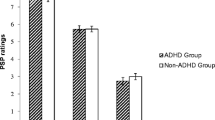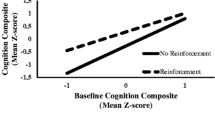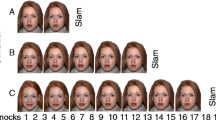Abstract
In a previous study, Milich, Carlson, Pelham, and Licht (1991) reported that, compared to placebo, attention-deficit hyperactivity disorder (ADHD) boys on methylphenidate (MPH) showed greater persistence following exposure to insolvable tasks, and were more likely to attribute success to internal causes and blame failure on external causes. The current study, using the same task, provided evidence for the salutary effects of MPH on the performance and perceptions of ADHD boys following both solvable and insolvable puzzles and found that subjects exposed to insolvable puzzles showed greater persistence on a subsequent generalization task when receiving MPH as compared to placebo. In addition, a measure of attributional style predicted performance on the task, but not attributions for task-performance. Finally, the current study found no differences between placebo and a “no pill” condition, thus extending the results of Milich et al. (1991) by demonstrating that treatment effects on performance and self-rating measures were directly related to receiving active medication.
Similar content being viewed by others
References
American Psychiatric Association. (1987).Diagnostic and statistical manual of mental disorders (4th ed.). Washington DC: Author.
Butkowsky, I. S., & Willows, D. M. (1980). Cognitive motivational characteristics of children varying in reading ability: Evidence for learned helplessness in poor readers.Journal of Educational Psychology, 72 408–422.
Carlson, C. L., & Bunner, M. (1993). Effects of methylphenidate on the academic performance of children with attention deficit hyperactivity disorder.School Psychology Review, 22 184–198.
Diener, C. I., & Dweck, C. S. (1978). An analysis of learned helplessness: Continuous changes in performance, strategy, and achievement cognitions following failure.Journal of Personality and Social Psychology, 36 451–462.
Diener, C. I., & Dweck, C. S. (1980). An analysis of learned helplessness: II. The processing of success.Journal of Personality and Social Psychology, 39 940–952.
Dweck, C. S., & Bush, E. S. 91976). Sex differences in learned helplessness: I. Differential debilitation with peer and adult evaluators.Developmental Psychology, 12 147–156.
Dweck, C. S., Davidson, W., Nelson, S., & Enna, B. (1978). Sex differences in learned helplessness: II. The contingencies of evaluative feedback in the classroom and III. An experimental analysis.Developmental Psychology, 14 268–276.
Dweck, C. S. & Elliott, E. S. (1983). Achievement motivation, In P. H. Mussen (Ed.),Handbook of child psychology: Socialization, personality, and social development (pp. 643–693). New York: John Wiley.
Dweck, C. S., Goetz, T. E., & Strauss, N. L. (1980). Sex differences in learned helplessness: IV. An experimental and naturalistic study of failure generalization and its mediators.Journal of Personality and Social Psychology, 38 441–452.
Dweck, C. S., & Leggett, E. L. (1988). A social-cognitive approach to motivation and personality.Psychological Review, 95 256–273.
Gittelman, R., & Kanner, A. (1986). Psychopharmacotherapy. In H. Quay and J. Werry (Eds.),Psychopathological disorders of childhood (3rd ed., pp. 455–495.). New York: John Wiley and Sons.
Henker, B., & Whalen, C. K. (1980). The many messages of medication: Hyperactive children's perceptions and attributions. In S. Salzinger, J. Antrobus, & J. Glick (Eds.),The ecosystem of the “sick” kid (pp. 141–166). New York: Academic Press.
Kaslow, N. J., Tannenbaum, R. I., & Seligman, M. E. P. (1978). The KASTAN-R: A children's attributional style questionnaire (KASTAN-R-CASQ). Unpublished manuscript, University of Pennsylvania, Philadelphia.
Lambert, N. M., & Sandoval, J. (1980). The prevalence of learning disabilities in a sample of children considered hyperactive.Journal of Abnormal Child Psychology, 8 33–50.
Licht, B. G., & Kistner, J. A. (1986). Motivational problems of learning-disabled children: Individual differences and their implications for treatment. In J. K. Torgesen & B. Y. L. Wong (Eds.),Psychological and educational perspectives on learning disabilities. Orlando, FL: Academic Press.
Licht, B. G., Kistner, J. A., Ozkaragoz, T., Shapiro, S., & Clausen, L. (1985). Causal attributions of learning disabled children: Individual differences and their implications for persistence.Journal of Educational Psychology, 77 208–216.
Milich, R., Carlson, C. L., Pelham, W. E., & Licht, B. (1991). Effects of methylphenidate on the persistence of ADHD boys following failure experiences.Journal of Abnormal Child Psychology, 19 519–536.
Milich, R., Licht, B. G., Murphy, D. A., & Pelham, W. E. (1989). ADHD boys' evaluations of and attributions for task performance on medication versus placebo.Journal of Abnormal Psyhcology, 98 280–284.
Milich, R., & Okazaki, M. (1991). An examination of learned helplessness among attention deficit hyperactivity disordered boys.Journal of Abnormal Child Psychology, 19 607–623.
Miller, D. T., & Porter, C. A. (1988). Errors and biases in the attribution process. In L. Y. Abramson (Ed.),Social cognition and clinical psychology: A synthesis. New York: Guildford Press.
Pelham, W. E. (1986). The effects of stimulant drugs on learning and achievement in hyperactive and learning-disabled children. In J. K. Torgesen & B. Wong (Eds.),Psychological and educational perspectives on learning disabilities (pp. 259–295). New York: Academic Press.
Pelham, W. E., Gnagy, E. M., Greenslade, K. E., & Milich, R. (1992a). Teacher-rated DSM-III-R symptoms of the disruptive behavior disorders: Prevalence, age effects, factor analyses, and conditional probabilities in a normative sample.Journal of the American Academy of Child Psychiatry, 31 210–218.
Pelham, W. E., Hamilton, M., Milich, R., Vallano, G., Gnagy, E. M., & Greiner, A. R. (1991). Methylphenidate dose effects on ADHD children: Individual differences across children and domains. Manuscript in preparation.
Pelham, W. E., & Hoza, J. (1987). Behavioral assessment of psychostimulant effects on ADHD children in a summer day treatment program. In R. Prinz (Ed.),Advances in behavioral assessment of children and families (Vol. 3, pp. 3–33).
Pelham, W. E., Milich, R., Murphy, D. A., & Murphy, H. A. (1989). Normative data on the IOWA conners teacher rating scale.Journal of Clinical Child Psychology, 18 259–262.
Pelham, W. E., Milich, R., & Walker, J. (1986). The effects of continuous and partial reinforcement and methylphenidate on learning in children with attention deficit disorder.Journal of Abnormal Psychology, 95 319–325.
Pelham, W. E., Murphy, D. A., Vannatta, K., Milich, R., Licht, B. G., Gnagy, E. M., Greenslade, K. E., Greiner, A. R., & Vodde-Hamilton, M. (1992b). Methylphenidate and attributions in boys with attention deficit-hyperactivity disorder.Journal of Consulting and Clinical Psychology, 60 282–292.
Rosen, L. A., O'Leary, S. G., & Conway, G. (1985). The withdrawal of stimulant medication for hyperactivity: Overcoming detrimental attributions.Behavior Therapy, 16 538–544.
Taylor, S. E., & Brown, J. D. (1988). Illusion and well-being: A social psychological perspective on mental health.Psychological Bulletin, 103 193–210.
Weary, G., Stanley, M. A., & Harvey, J. H. (1980).Attribution. New York: Springer-Verlag.
Author information
Authors and Affiliations
Additional information
This study was conducted during the 1990 Summer Treatment Program (STP) conducted by the Attention Deficit Disorder Program at the Western Psychiatric Institute and Clinic. We thank WPIC for its support, as well as the ADD and STP program staffs for their helpful cooperation, particularly Gary Vallano, and Mary Vodde-Hamilton. During this research, the first author was supported by a grant from the National Institute of Mental Health (MH46754). The second author was supported in part by grants from the National Institute of Mental Health (MH48157), the National Institute on Alcohol Abuse and Alcoholism (AA06267), and the National Institute on Drug Abuse (DA05605). The fourth author was supported in part by grants from the Western Psychiatric Institute and Clinic Mental Health Clinical Research Center (MHCRC-R181), and the National Institute of Mental Health (MH48157 and MH47390).
Rights and permissions
About this article
Cite this article
Carlson, C.L., Pelham, W.E., Milich, R. et al. ADHD boys' performance and attributions following success and failure: Drug effects and individual differences. Cogn Ther Res 17, 269–287 (1993). https://doi.org/10.1007/BF01172950
Issue Date:
DOI: https://doi.org/10.1007/BF01172950




